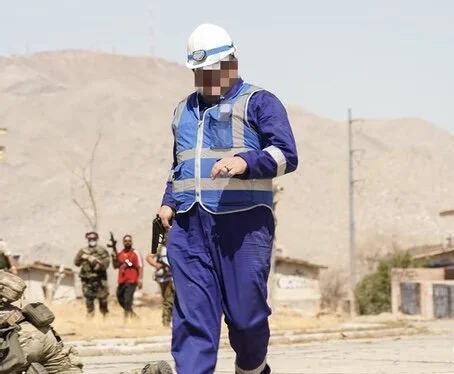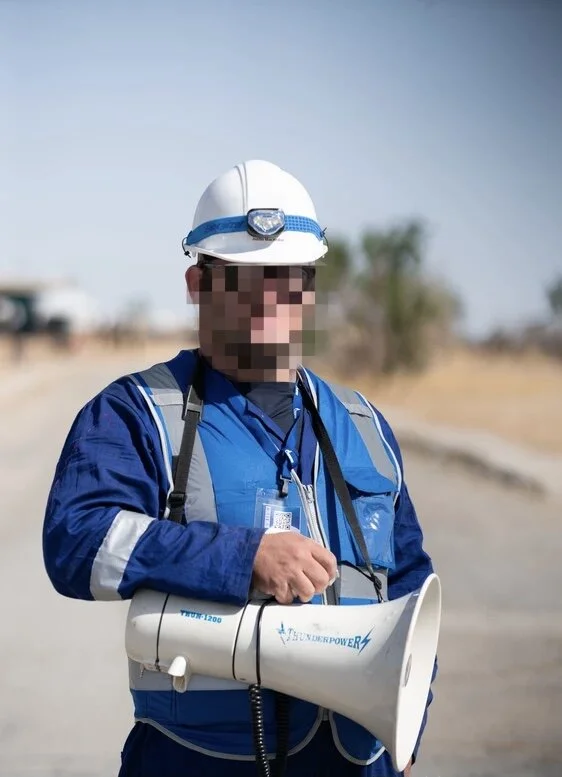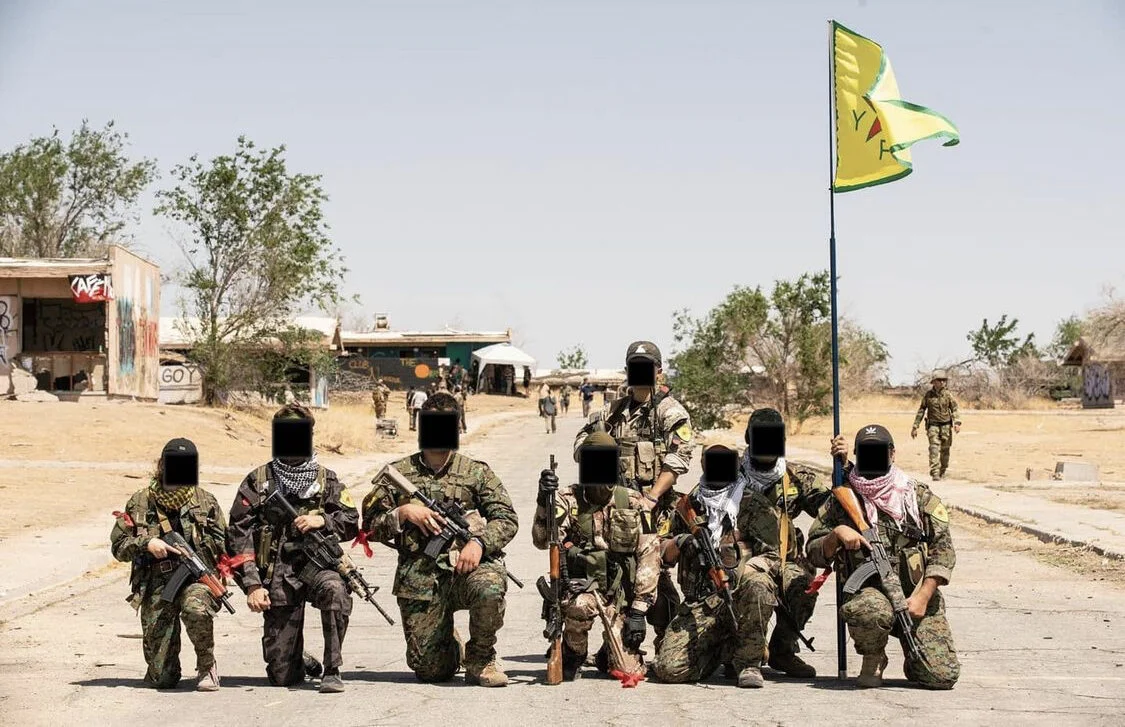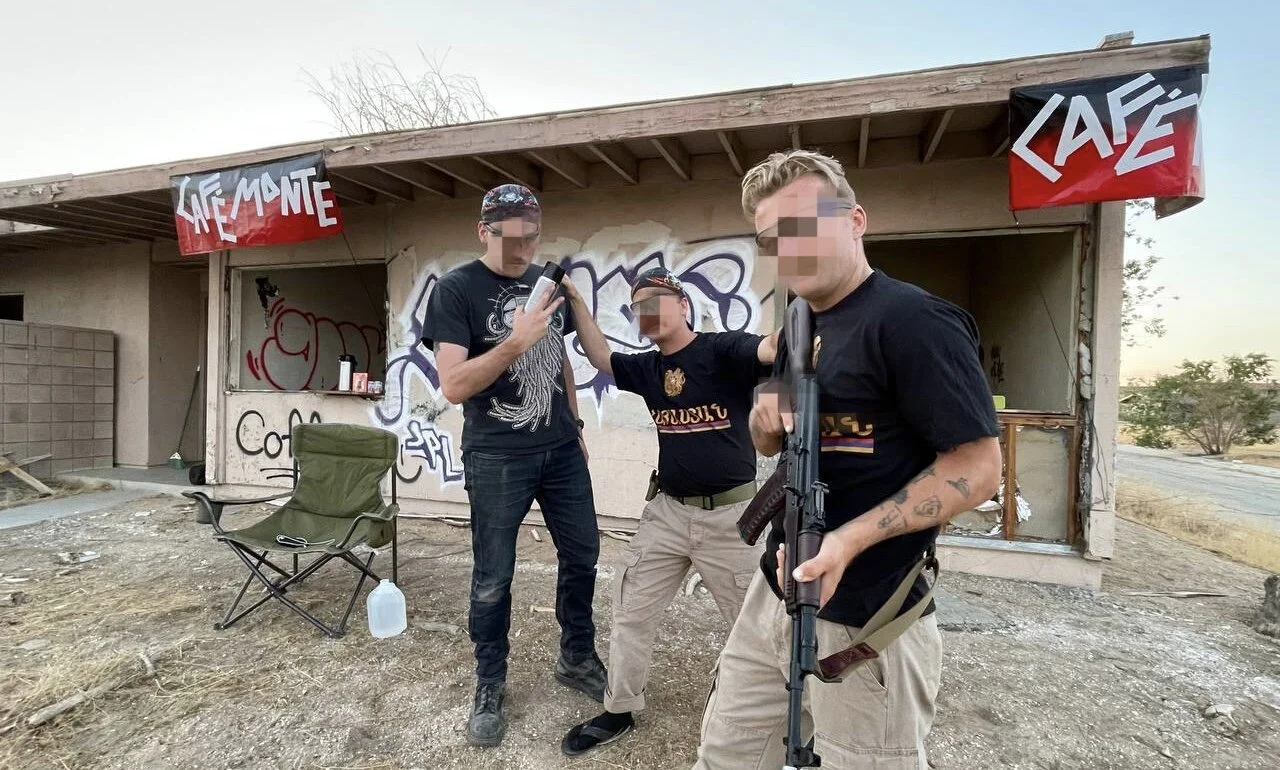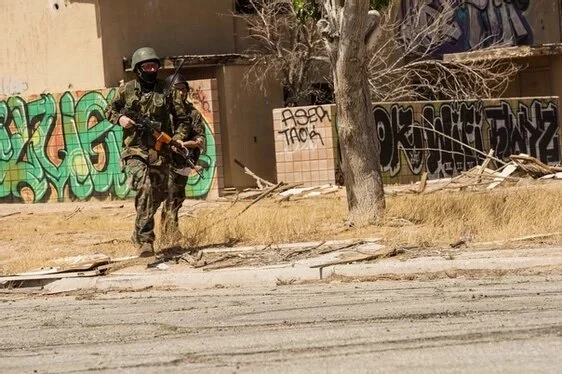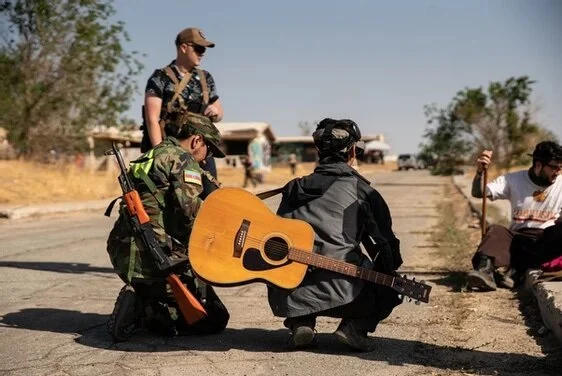Gazprom Pipeline Delayed by Rebels, Still on Schedule
Gazprom office in Stepanakert. (Secondary Pictures)
From CGTN: Central Asia
Gazprom district manager, armed with a small handgun for self-defense, runs to aid a fellow Gazprom employee. (Secondary Pictures)
Gazprom employees repose in a nightclub, temporarily converted into makeshift sleeping quarters, after a day of avoiding ASALA attacks on their company and infrastructure. (CGTN: CA)
Gazprom, Russia’s state-owned natural gas company, stated that its newest natural gas pipeline project, spanning through Russia, Iran, Armenia, and Turkey, is still set to complete on schedule, according to Sergey Kupriyanov, Gazprom’s spokesperson.
Gazprom distrct manager for Artsakh. (Secondary Pictures)
Gazprom employee during interview (Secondary Pictures)
”Artsakh rebels, most likely the offshoot of the Armenian ASALA rebel group, were responsible for the attack on our pipeline and personnel,” said the Gazprom regional manager, who wishes to remain anonymous. “The Armenian extremists dislike the result of the Nagorno-Karabakh war and want Russia to leave the area, and as a result see us, a Russian gas company, as a threat.” Two Gazprom employees were injured and a section of the natural gas pipeline exploded due to ASALA attacks. No deaths were reported and the pipe was fixed, preventing secondary explosions.
Another Gazprom employee during interview (Secondary Pictures)
YPG guerrillas with their SF handler. (DLA)
The local government of the Armenian part of Artsakh brought in YPG fighters in order to mediate and reduce friction in the area. PKK, a militant Kurdish group considered more extreme than their YPG counterparts, sent cadre which likely trained and embedded with the ASALA faction. This is currently being investigated by the international NATO contingent and their YPG counterparts.
ASALA fighter. Note his camouflage jacket is the same as worn by Azeri security forces, worn likely in an attempt to shift blame on Azeri security forces.
ASALA Armenian extremists. These individuals were responsible for attacks on Russian infrastructure made by Gazprom. (ASALA Telegram)
YPG fighter seen through NATO night vision goggles. (DLA)
Russian army peacekeepers continue to mediate the area and protect the gas pipeline, and the international NATO assistance force oversaw both the Kurdish YPG and Azeri army stationed in the area.
Azeri army soldier on patrol (Secondary Pictures)
Azeri soldier with Armenian guitarist and other Artsakh civilians (Secondary Pictures)
An unprovoked attack from a foreign guns-for-hire group called SSMS forced the Azeri government forces to route to the outskirts of the city. An international team of investigators is looking into the situation, and if any arrests can be made. Because of the SS in their name, it is possible that they are a far-right mercenary group.
Despite the mixed Azeri-Armenian provisional governments in each district, there were no reported incidents of Azeri soldiers harming Armenian civilians. However, poor governance and the city officials not agreeing on what to do with them led to their transfer to outside city limits.
Despite all this, Gazprom is revitalizing the area with jobs, infrastructure, and plans to continue to do so in the future.
SSMS mercenaries (OSINT)
Disclaimer: These articles are made for CGTN: Central Asia, a parody news site that ties Far East Tactical’s storyline to airsoft events we partake in: Milsim West, Milsim Hawaii, and otherwise.
These are not real. That’d be funny if people think they’re real, but no. It’s not that deep. The state of media and people taking milsim too seriously, lol.


